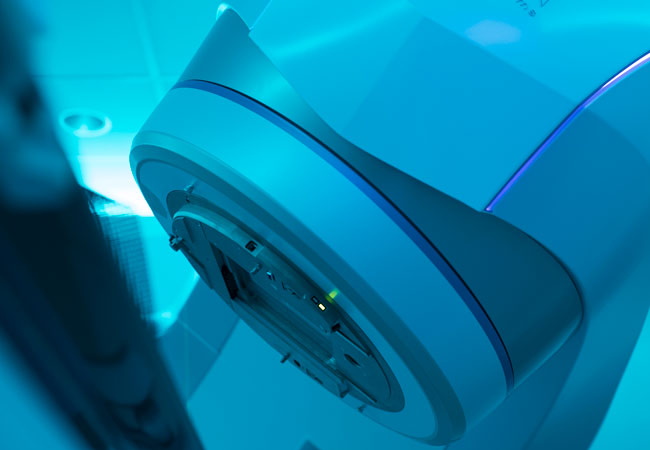A Conversation with SNMMI Past President Dr. Richard Wahl
The Society of Nuclear Medicine & Molecular Imaging (SNMMI) recently hosted its 2022 annual meeting in Vancouver, British Columbia, Canada. Marking the end of his tenure as 2021-22 SNNMI president, Richard Wahl, MD, called the meeting, which drew approximately 3,500 in-person and 3,000 virtual attendees from 172 countries, a great success.
“Our meetings bring together the best science in nuclear medicine and molecular imaging, with opportunities for commercial leaders and individuals to interact. We had a global impact in our digital platform and our in-person meeting. Our scientific and commercial exhibits were the largest we've ever had,” said Dr. Wahl, who is the Elizabeth E. Mallinckrodt Professor and the head of radiology at Washington University School of Medicine in St. Louis. He is also director of the university’s Mallinckrodt Institute of Radiology and a professor of radiation oncology.
2022 SNMMI Annual Meeting Theme and Topics
The theme of this year’s meeting was “Advancing Precision Imaging & Therapy,” highlighting the increasing importance of precision imaging to the diagnosis and staging of treatment for a wide variety of diseases and conditions. It also emphasized the excitement around recent U.S. Food and Drug Administration (FDA) radiopharmaceuticals approvals for diagnostic and therapeutic use.
The meeting offered sessions on such topics as 18Ffluorodeoxyglucose (FDG)-positron emission tomography (PET) scanning and new prostate-specific membrane antigen (PSMA) imaging agents, such as Gallium-68 PSMA and F18 PSMA targeting agents.
“People are interested in learning how to use these newer techniques, what their prognostic significance is, and how they change disease management,” Dr. Wahl noted.
Attendees also learned about imaging interstitial cells, the non-cancerous cells that sit within a cancerous tumor, including using radiolabeled fibroblast activating protein inhibitors (FAPI) to image certain cancers, such as pancreatic cancer. On the neurological front, tau and amyloid imaging were highlighted for their ability to discern these proteins’ roles in early dementia. Other topics of interest included fibroblast imaging to determine inflammation and fibrosis in myocardial infarcts; radiopharmaceutical therapy, particularly with Actinium-225, an alpha particle emitter therapy of neuroendocrine tumors; and SPECT-CT for bone scanning.
Exciting SNNMI Program Launch
In June 2022, the SNMMI launched the “Mars Shot for Nuclear Medicine, Molecular Imaging, and Molecularly Targeted Radiopharmaceutical Therapy,” an initiative targeted to raise $100 million to help advance nuclear medicine. The goal of the Mars Shot is to provide the resources to translate nuclear medicine imaging, radiopharmaceutical therapy, and data science research and/or projects into tools or treatments that will help improve the lives of patients.
The Mars Shot Fund has thus far collected more than $1 million in grants and pledges, with a goal of distributing $400,000 in its first year. In addition, work is underway to increase federal spending on nuclear medicine research; the SNMMI has asked Congress to include a line item for the Mars Shot Fund in the Department of Energy or the Department of Defense budget.
“We are in a revolutionary period for nuclear medicine, molecular imaging, and therapy,” said Dr. Wahl. “It’s essential that we capitalize on the momentum of this unparalleled innovation now so that we can continue to transform the nature of disease prevention, diagnosis, and treatment in the near future.”
Increasing access to nuclear medicine imaging
Throughout his tenure, Dr. Wahl has worked with Centers for Medicare & Medicaid Services (CMS) and SNMMI advisors to increase patient access to nuclear medicine procedures and emerging technologies. Their efforts have led to broader Medicare coverage of for non-oncologic PET scans. “That means FDG-PET is now widely-covered and made available for infection detection, which is really important for patients,” he said.
This set the stage for other previously noncovered PET agents to be reimbursed by Medicare under local carrier discretion. “That's a real win for patients, as well as the providers of PET imaging. It's really practice-changing,” Dr. Wahl said.
Dr. Wahl said he considers one of the greatest accomplishments over the last year to be getting the Financing Innovative Nuclear Diagnostics (FIND) Act of 2021 introduced in Congress. The bill aims to address the Centers for Medicare and Medicaid Services (CMS) bundling of diagnostic radiopharmaceuticals in the hospital outpatient setting. Under current practice, Medicare reimbursement is often only 10% to 15% of the actual cost of the radiopharmaceutical because payments are bundled with IV contrast and other supplies.
This would help ensure that Medicare patients get access to nuclear imaging studies and that hospitals receive reimbursement for the costs of the procedures.
“The barriers to accessing nuclear medicine are real for many, but they're particularly bad for historically underserved populations. Rural populations also have very poor access to nuclear medicine. So that’s a real opportunity for the FIND Act,” he said.
Passing the Baton
Munir Ghesani, MD, system chief of nuclear medicine at Mount Sinai Health and associate professor of radiology at Icahn School of Medicine at Mount Sinai in New York City, will assume the role as the 2022-23 SNMMI president. For continued success in the SNNMI organization, Dr. Wahl advised Dr. Ghesani to “listen to constituents” while continuing to push nuclear medicine forward.
“Nuclear medicine is undergoing a Renaissance in terms of its relevance to a broad range of human conditions. Our role in diagnosis and therapy has never been greater, and I expect it to grow more,” he said. “We need to bring the best and the brightest people into the field as physicians, technologists, and scientists. There are great opportunities, and their exceptional work in nuclear medicine will help transform the world of healthcare.”
